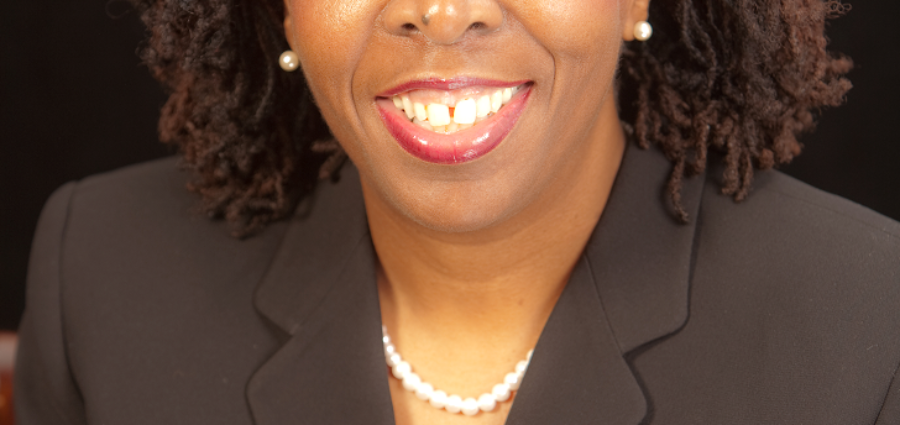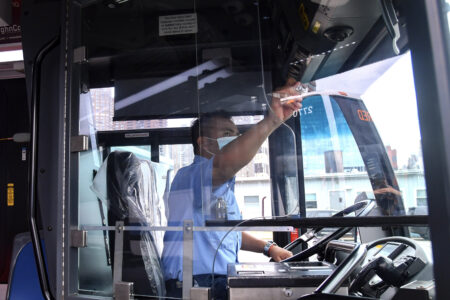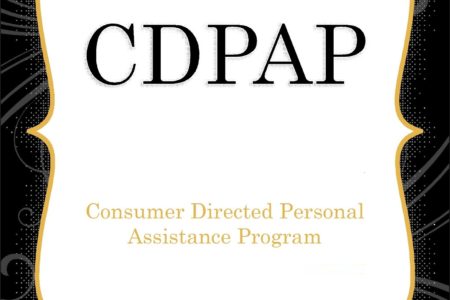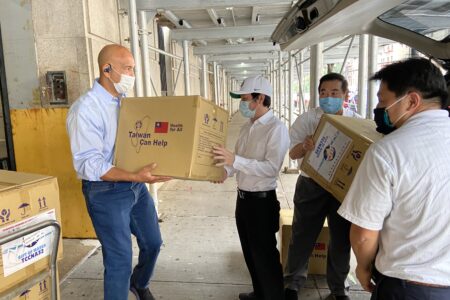Diane Cooper R.N., M.Ed., GNP is the CEO of Caregivers Outreach Ministry Empowerment, a non-profit organization that advocates for family caregivers of the elderly. She is a New York City volunteer Caregiver Community Action Network (CCAN) representative for the Caregivers Action Network. Mrs. Cooper is presently a family caregiver to her husband.
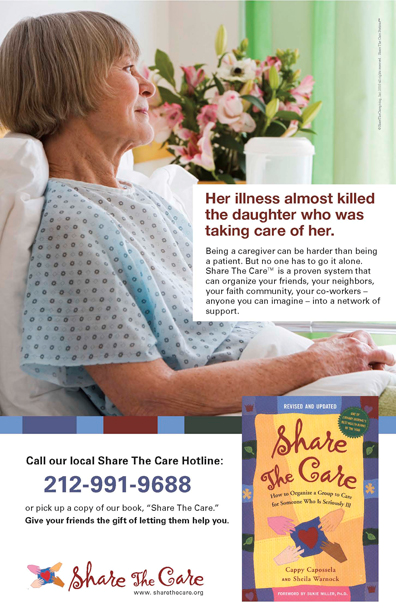
Are You A Family Caregiver?
Are you picking up medicine from pharmacy for someone?
Cooking meals for someone?
Assisting someone to get dressed?
Taking them to doctor appointments?
Assisting with paying monthly bills?
Moved in with a loved one or moved them into your home because they can no long live at home alone?
So you are a Family Caregiver!
Did you know: Family Caregivers are persons who provide unpaid care or assistance to those with chronic conditions, disabilities, disease, or the frailties of old age. This may include a family of origin, church family, a friend, neighbor or co-worker. Family Caregivers are committed to sacrificing their time and love for the benefit of other.
The typical family caregiver is a 49-year-old woman caring for her widowed 69-year-old mother who does not live with her. She is married and employed. Approximately 66% of family caregivers are women. More than 37% have children or grandchildren under 18 years old living with them. However, the numbers of men caregivers are steadily rising.
14% of family caregivers care for a special needs child with an estimated 16.8 million caring for special needs children under 18 years old. 55% of these caregivers are caring for their own children.
Nearly three quarters (72%) of family caregivers report not going to the doctor as often as they should and 55% say they skip doctor appointments for themselves. 63% of caregivers report having poor eating habits than non-caregivers and 58% indicate worse exercise habits than before caregiving responsibilities.
Family caregivers experiencing extreme stress have been shown to age prematurely. This level of stress can take as much as 10 years off a family caregiver’s life. 83% of self-identified family caregivers believe their self-awareness led to increased confidence when talking to healthcare professionals about their loved one’s care.
Who is the primary caregiver? Most often the primary caregiver is the unmarried child, the one who lives nearest, the daughter or daughter in law or the family member with a medical background. In some incidents it is the loved one that the care recipient prefer over all others. The primary caregiver may be the person that your love one lives with or the person who provides most or all the tasks. The primary caregiver is the one who is willing, able, and available to provide the care? That primary caregiver may be you. You may have family members that are willing but not able, able but not willing or able and willing but not available. So where do you begin?
Write down what assistance or task would enhance the quality of your loved ones life as well as your own. For example, someone to pre-pour your loved ones medications for 2 weeks, or go with them to appointments, take them to church or the senior center, prepare meals for several days or for a week at a time, stay with your loved one 1-2 weekends out of a month or take them to their home for a week or two. Maybe someone can wash the laundry or pay for cleaning service. Something, as little as a phone call can enlighten a caregivers’ spirit. A phone call offering appreciation, reassurance and positive feedback can be encouraging to the primary caregiver but often forgotten.
“I need help, no one is helping me” When asking for help, be specific. What kind of “HELP”! Do you need? Each person’s definition of “HELP”! may be different. You may not be getting the “HELP”! you need because no one knows you need “HELP”! because you never asked for it. I am often confronted with the question “why should I ask for help? Can they not see that I need help?” The answer is NO! YOU are doing such a great job. It appears that YOU have everything under control and besides no one can take care of your loved one like YOU.
Allow family members to express their concerns, fears and limitations. One family member may be better at speaking to healthcare providers; another may not be comfortable bathing or changing diapers and another may want your loved one to live with them but did not know how to approach YOU. Another may want to provide financial assistance. It can be a blessing when there are several children and friends involved with the care of a loved one to share the caring.
On the other hand, a family caregiver who is an only child can be challenging. Preparation, if possible, is vital to the success of the caring role. The caregiver who is an only child must incorporate the assistance of friends and extended family members. It is important to discuss your loved ones wishes and concerns. Should they move near you or in your home if they are no longer able to live alone?
A family member who is a long-distance caregiver can also be challenging however, it is still possible to take on some of the caregiving responsibilities. Often times, long distance caregivers feel guilty because they are not able to assist in the caring role as much as they would like. Research shows that there may be as many as 7 million long distance family caregivers in the USA. It is difficult to tell if a loved one is truly getting along by a telephone call. Just because they tell you that they took their medications, eat all their meals and shower does not make it so! Free information is available regarding Long-Distance caregiving here or by calling 1-800-222-2225.
Seeking the services of a Geriatric Care manager may assist you in your long distance caregiving role. For example, a case manager may be able to visit your loved one in an emergency, in the hospital or nursing home. They can follow up on MD appointments, medicines and aide services. You can arrange for them to visit your loved one weekly or monthly and update you on their status. You can ask the case manager to facilitate a meeting with family members regarding the needs of your loved one and how to meet them. Professional care mangers are usually licensed nurses or social workers that specialize in geriatrics. Families can hire a geriatric care manger to evaluate the need of the care recipient and set up a plan with the collaboration of community organizations. The National Association of Professional Geriatric Care Managers, CareManager.org can help you find a care manager near your loved one’s home.
Although most caregivers view their work as rewarding, many experience significant stress and negative health impacts. Family members who provide care to individuals with chronic or disabling conditions are themselves at risk. Evidence shows that most caregivers are unprepared for their role, and provide care with little or no support, yet more than one-third of caregivers continue to provide intense care to others while suffering from poor health themselves. Caregivers forsake their needs for the needs of others.
It is during the month of November and every day that Caregivers Outreach Ministry Empowerment, Inc. (C.O.M.E.) along with organizations throughout the country encourage family caregivers to take four steps every day to empower family caregivers to act on behalf of themselves and their loved ones, and to remove barriers to health and well being. Believe In Yourself. Protect Your Health, Reach Out for Help, and Speak Up for your Rights.
In honor National Family Caregiver Month, Caregivers Outreach Ministry Empowerment (C.O.M.E.) will host its 7th Family Caregiver Recognition Award Luncheon on Saturday, November 9, 2013. The Master of Ceremonies will be Julian Phillips motivational speaker. He most recently served as co-host of Weekend Fox and Friends. The luncheon is held each year to bring recognition and appreciation to the role family caregiver’s play within our communities. It is also a time to get the attention of policy makers; healthcare providers and program developers of caregivers programs to assure that the needs and considerations of family caregivers are heard.
14 family caregivers from throughout the tri-state area and afar will be recognized with the Leon David Simmons Award. The honorees were nominated by family members, friends, medical providers, pastors and other community organizations; for their daily commitment, dedication and contribution to our community and our nation. Sometimes throughout our busy day we forget to say, “Thank you family caregiver, you are doing a great job and we appreciate all that you do.” November 9, 2013 is for YOU family caregivers for making a difference in the lives of others!
Sponsors : McCall’s Bronxwood Funeral Home, Rent-A-Center, EmblemHealth, Department for the Aging, CenterLight Health System Today’s Caregivers – Caregivers.com and Golden Krust Bakery. Take a moment to encourage a family caregiver with a kind thought, prayer. Invite a caregiver to take a few hours away from their Caregivers’ responsibilities. It will be a day to remember.
2013 Family Caregivers Award Honorees: Bernice Austin of Brooklyn, NY; Georgia Cameron Gregoire of Brooklyn, NY; Derrick Brown of Bronx NY; Barbara King Phillips of Port Washington, NY; Edith Jenkins of Mt. Vernon, NY; Miriam Velez of Bronx, NY; Charisse Hubert of Bronx, NY; Josefa Colon of Bronx, NY; Virginia Sepulveda Rose of Bronx, NY; Yasmine Matheson of Brooklyn, NY; Cathie Louder of Lithonia, GA; Evelyn Rodriquez of New York, NY; Millie Ortiz Powell of Babylon, NY; and Gay Bond of Stamford, CT.
2013 Community Service Award Honorees: Sheila Warnock, Founder/President of ShareTheCaregiving, Inc., Dr. Sumir Sahgal, Medical Director of EssenMED House Calls and the staff of Essen Associates, PC.
Sheila Warnock author of Share The Care Share The Care™ is a detailed step-by-step model that shows people HOW TO. For more information on sharing the caring please visit ShareTheCare.org.
Create a unique caregiver “family” from friends, relatives, neighbors, co-workers and acquaintances. Answer the question all your concerned neighbors and friends have asked. “How can I help?” Hold a meeting that will transform and bond a group of ordinary people into a powerful caregiver team. Organize the team using a simple, easy-to-follow system, seven guiding principles, and 23 forms that guarantees every job will get done and no one person will have too much to do. Uncover the hidden talents within the group, make the most of their resources, cope with group issues and stick together in the face of adversity.
Whether you are a burned out caregiver or a novice caregiver, or a friend that wants to help, you can benefit from a system that lets everyone share responsibilities, and creates a strong support network among the caregivers and leads to making a profound difference in someone’s life. This model brings out the very best in each of us.
10 Tips for Family Caregivers
01. Seek support from other caregivers. You are not alone!
02. Take care of your own health so that you can be strong enough to take care of your loved one.
03. Accept offers of help and suggest specific things people can do to help you.
04. Inform your doctor about your caregivers role.
05. Learn how to communicate effectively with doctors.
06. Caregiving is hard work so take respite breaks often.
07. Watch out for signs of depression and don’t delay in getting professional help when you need it.
08. Be open to new technologies that can help you care for your loved one.
09. Organize medical information so it’s up to date and easy to find.
10. Make sure legal documents are in order
Give yourself credit for doing the best you can in one of the toughest jobs there is!
You are not alone. We want to thank you for making a difference in our families, community and Nation. It is importance that you take care of you as you care for others. Let us give recognition and appreciation to yet another gift God has given to this world.
Hug a Caregiver Today – Caregivers Need Caring Too!
“The greatest among us is that of a servant.”
Mathews 23:11



